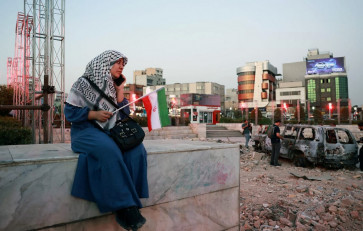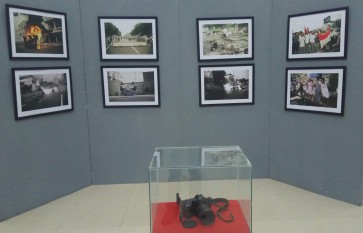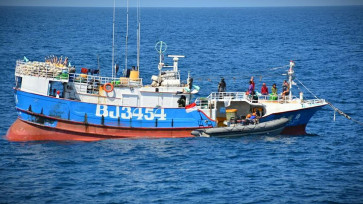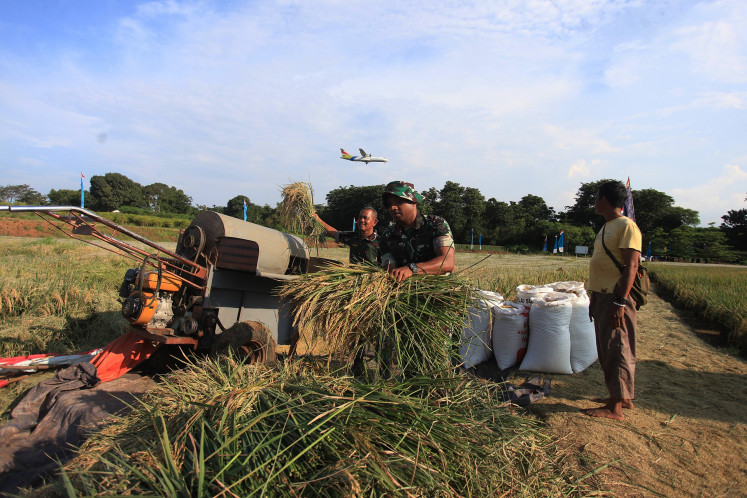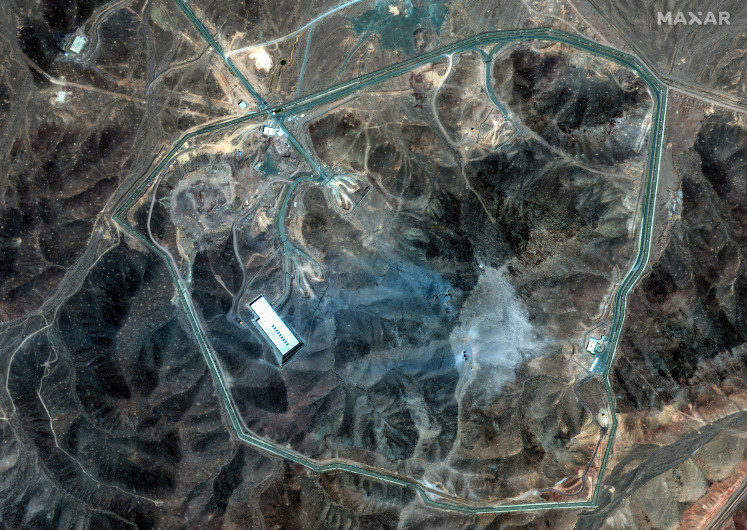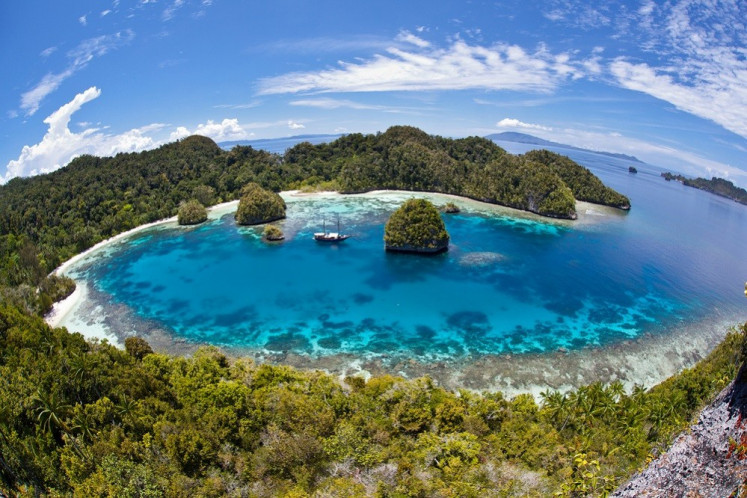Popular Reads
Top Results
Can't find what you're looking for?
View all search resultsPopular Reads
Top Results
Can't find what you're looking for?
View all search resultsTrans-Java double track faces further delays amid land dispute
The Transportation Ministry is still acquiring land in the eastern part of Java for its Trans-Java double track railway project, further delaying the project
Change text size
Gift Premium Articles
to Anyone

T
he Transportation Ministry is still acquiring land in the eastern part of Java for its Trans-Java double track railway project, further delaying the project.
The ministry's railway directorate general spokesman, Muhartono, said on Wednesday that the ministry might have to further delay the full operation of the Jakarta-Surabaya (East Java) railway system after this month, from the project's initial target of the end of last year, due to ongoing land acquisition.
The ministry has only put into operation 333 kilometers of the Cirebon (West Java)-Surabaya section as of the end of March and the Jakarta-Cirebon section since 2009.
The Cirebon-Surabaya section spans 436 km in total, while the entire double track system stretches 727 km from Jakarta to Surabaya.
'We're actually planning to operate the remaining 103 km [from Bojonegoro to Surabaya, both in East Java] in stages this month and fully operate the tracks from Jakarta to Surabaya on April 30,' Muhartono told The Jakarta Post on Wednesday.
'However, it could be delayed as we are still dealing with land acquisition in some spots between Kandangan [East Java] and Surabaya.'
He said the land acquisition, which covered two different areas of 3,300 square meters and 3,005 sqm, was still underway to build new public roads to replace the previous ones cut through by the double track railway system. Muhartono said the ministry was planning to commence the operation of the 35 km section connecting Bojonegoro and Babat in East Java on April 11, followed by the 15 km Duduk-Kandangan section on April 17 and the 45 km Babat-Duduk section on April 24.
The final 8 km Kandangan'Surabaya section was initially scheduled to start operation on April 30.
The ministry's railway transportation director general, Hermanto Dwiatmoko, previously said that the Trans-Java double track railway system along Java's northern coastal area (Pantura) would help ease the burden of logistics transportation that mostly depended on land transportation.
'Around 30 percent of the load of logistics that currently depends on land transportation is expected to shift to train transportation by the time the Trans-Java double track railway operates,' he said.
According to Hermanto, the ministry has provided unloading facilities in Jakarta, Semarang, Central Java, and Surabaya to support the logistics sector.
The double track system would also increase the existing railway capacity from 84 trains to 200 trains per day and reduce congestion and damage to roads, he said.
'Based on the information we've collected, [state-owned train operator] PT KAI has bought 150 new locomotives and around 1,000 train cars, some of which are aimed to support the operation of the double tracks,' he said.
The Rp 10.5 trillion (US$929.7 million) project is also expected to reduce the traveling time between Jakarta and Surabaya from between 11 and 13 hours to only between eight and 10 hours.
The double track railway system was built almost 150 years after the Dutch built the railway line in Java in 1864.

